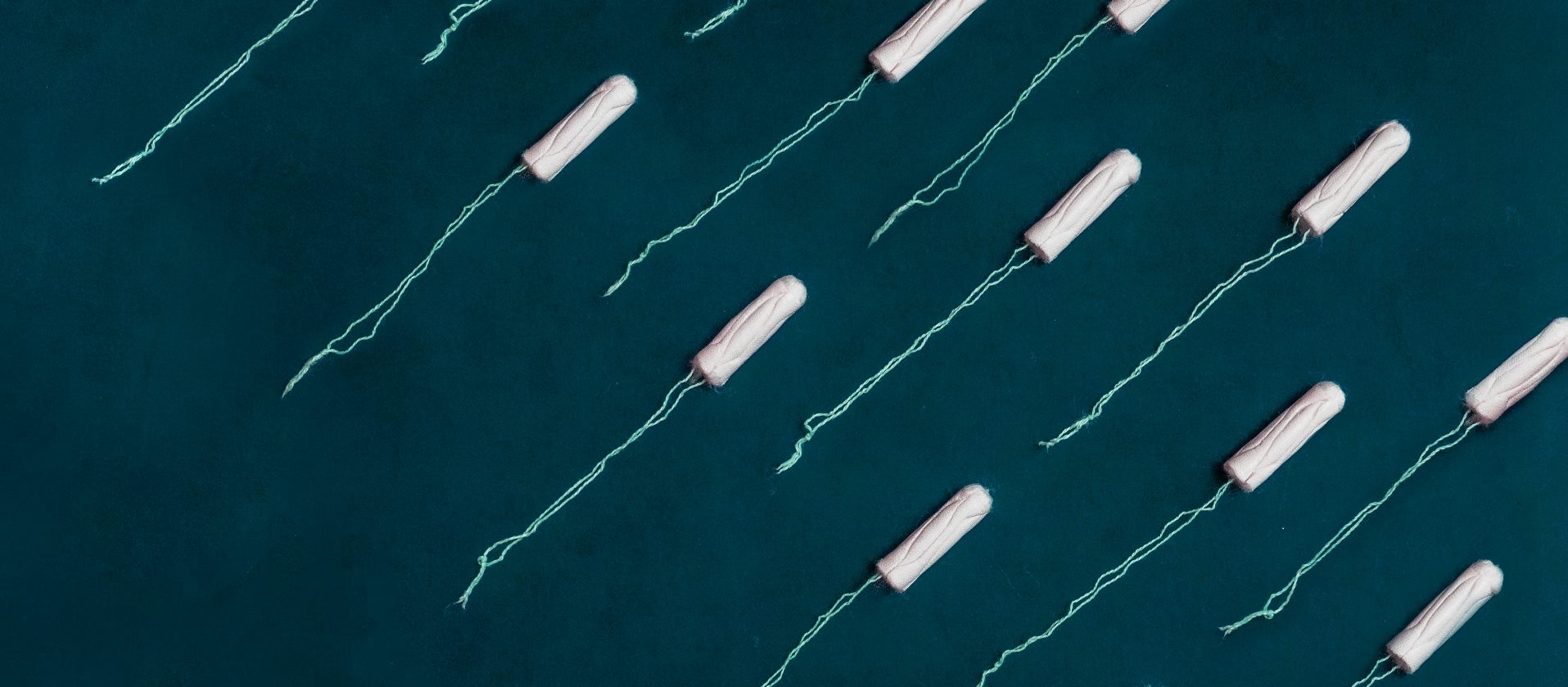Even though the biggest changes I’ve made so far to my period routine have been switching to a cup and period knickers, I need to mention my switch to organic cotton disposables as they’re equally as sustainable. They’ve been the easiest change as, like most people, I was using disposable products like sanitary towels and tampons already.
Before I started researching eco-friendly sanitary products, I had no idea the difference between the regular pads and tampons I had been using since I started my period, and organic disposables. Here’s what I learnt:
Some high street brands have plastic in them
Most high-street brands of pads, liners and tampons are made with conventional cotton, which is processed with toxic pesticides (more of this in the next point). A lot of popular brands have been found to include plastic and other unnatural ingredients in their products too. I mention a few more stats in my introductory post regarding high street brand ingredients, including how one study found that a pack of pads is the equivalent to 4 plastic bags!
It goes without saying that sanitary towels touch the delicate areas of our bodies and we put tampons inside us, so why should we use ones with unnatural and possibly harmful ingredients?
View this post on Instagram
Organic cotton is kinder to the environment
In natural form cotton is biodegradable, but the nasty kind I mention above isn’t. The toxic pesticides that are processed to make conventional cotton are both bad for the planet and can be harmful to our bodies. Some of the horrible ingredients ruin the soil cotton is grown in and do more harm than good to animals, the people farming it, and surrounding areas.
The process for organic cotton doesn’t include any toxins and is made more sustainably. Organic cotton is farmed on rotating soil, meaning surrounding crops benefit. Another bonus is that organic cotton is biodegradable.
Most of the sustainable disposables sanitary items that use organic cotton are cruelty free and vegan too.
It’s kinder to the body
Ok, so there’s no data yet to prove that non-organic sanitary products have a negative effect on the body. However, lots of people have found organic cotton products don’t irritate the body as much as high street brands with conventional cotton do. Which would make sense, considering the chemicals in conventional cotton compared to the gentler organic cotton.
View this post on Instagram
Less cramps?
Similarly other people, myself included, find that organic cotton reduces the pain of cramps. Of course, it could be a sort of placebo effect or just coincidence that cramps aren’t as bad during that time I’m using them, so take this with a pinch of salt.
Breathable and more comfortable
Organic cotton feels more comfortable against the body, as well as breathable. I like to wear a liner every day, so I wanted something that was biodegradable, eco-friendly and breathable. The TOTM organic liners tick all those boxes for me.
View this post on Instagram
Better ingredients
Unlike regular cotton brands, the sanitary disposables I’ve found that use organic cotton don’t use fragrances, bleach, deodorants, wood pulp, or chlorine in their products. Most high-street brands use synthetic absorbents (very similar to plastics) to absorb the menstrual blood.
Instead, organic cotton brands are fragrance-free and hypoallergenic, with organic cotton absorbent meaning there’s no plastic against the skin.
Disposables
The thing to remember about these products is that they’re still disposables! So no need to change period habits. People tend to think that the only way to have an eco-friendly period is to use reusables like menstrual cups and period pants, but you’re still able to use the same methods to manage your menstrual cycle without needing to get use to something new.
Organic cotton brands
Personally, I’m a huge fan of TOTM as I like their products, have had good experience with their customer service, and agree with their ethos. Other organic cotton brands I hear people enjoy are:
And more. A lot of these run subscription services too, making it even easier to manage your period.
Organic cotton is not something I knew much about until I began researching. If I could, I would go back and tell my teenage self to use organic cotton sanitary products because I think I would have got on better with my period.
Do you use Organic Cotton sanitary products yet? If not, I would recommend trying them.
View this post on Instagram
If you’ve followed my whole Journey to eco-friendly periods series, thank you. I hope you’ve learnt something from my findings.
To summarise. It’s been over a year since I stopped using conventional cotton tampons and pads, and my body feels better. I now use a menstrual cup most of the time, period pants at night, and pads occasionally. Who knows what my period habits will be like this time next year? I might only use the cup, or may have moved back to pads and tampons but with organic cotton.
What’s vital about period care is that people use whatever methods they are most comfortable with. I think the methods I’ve discussed in my journey are worth trying, but only if you’re curious. No one should ever feel pressure to use a period method they don’t feel comfortable using. We’re all different.
If anyone wants to talk to me about periods, please do!
